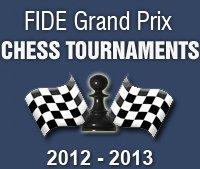European Union Awards Chess 'Religion' Status
 The European Commission has ruled that membership of chess clubs and national chess federations can be classed as religious worship under the currently applicable laws covering member countries of the European Union (EU).
The European Commission has ruled that membership of chess clubs and national chess federations can be classed as religious worship under the currently applicable laws covering member countries of the European Union (EU).
The test case was brought by the Latvian Chess Federation, home of former world chess champion Mikhail Tal. Local chess clubs in the country had failed to qualify for EU grants, since the EU does not classify chess as a sport.
However, institutions can also gain access to EU funding if they are based around recognised religious organisations, provided that membership is open to everyone.
The European Commission ruled that under the current definitions used to establish "faith-based" organisations, chess clubs are qualifying institutions.
The key characteristics are:
- A distinct legal existence (the clubs were incorporated or registered charities)
- Established places of worship (chess clubs)
- Regular congregations (weekly meetings of the club)
- Regular instruction on articles of faith (chess lessons conducted at the club)
- Ministers selected after completing prescribed studies (FIDE awards GM, IM titles etc)
- A deity (the chess goddess Caissa, pictured below)
- A distinct history (modern chess dates from the 15th Century, but has its origins back some 1,500 years)
- A code of doctrine and guiding principles (chess precepts and maxims)
- A literature of its own (there are hundreds of thousands of chess books)
.
It remains to be seen whether the European Parliament ratifies the decision of the European Commission, or decides to tighten the regulations to exclude chess clubs. In the meantime, funding is at last available to cash-starved chess clubs in the EU.
.
Chess instruction at the Chess Club and Scholastic Centre of St.Louis

.
| The traditional image of Caissa | A more modern interpretation |
 |
 |
UPDATE: HAPPY APRIL FOOL'S DAY EVERYONE!
